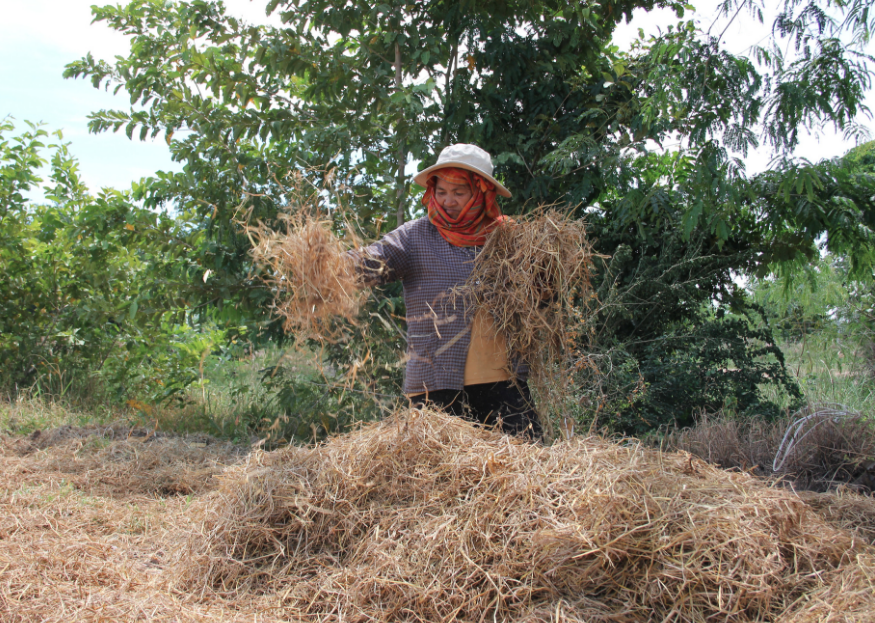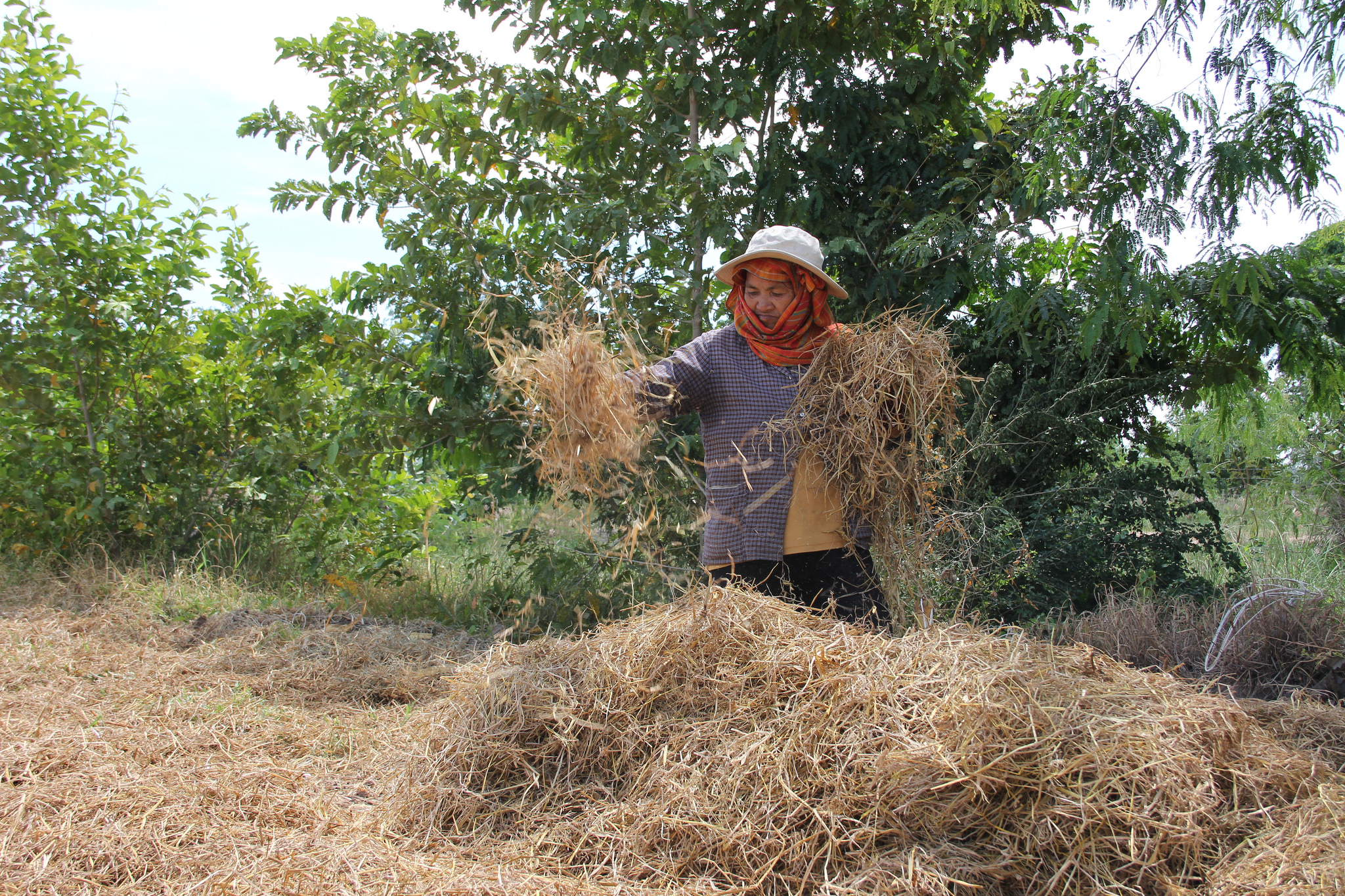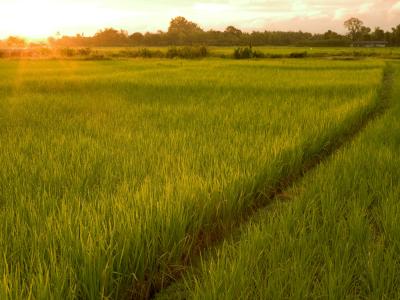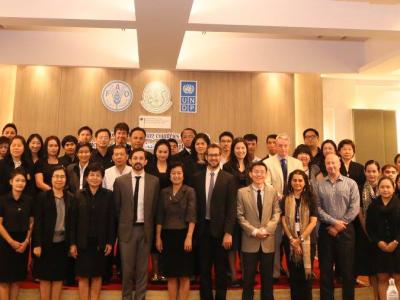In Thailand agriculture constitutes 10.5 percent of the GDP (2014) and employs approximately 25 million people, accounting for 42 percent of the labour force. Over 80 percent of the country's poor live in rural areas (as of 2014) and are particularly dependent on agriculture. Climate change impacts are projected to increase the frequency and severity of floods, droughts, extreme weather events, sea level rise, and high temperatures. Specific risks to agriculture include the destruction of rice and other crops unable to cope with floods, and increased water stress for farmers in drought prone areas.
Protecting the agricultural sectors from these impacts is essential to Thailand’s economy, the food security of its rural population and their way of life. Furthermore, as a major exporter of agricultural commodities, responding effectively to climate change will mitigate negatives shocks on global commodity supplies. Adaptation is a key priority in Thailand’s response to climate change and the government has stressed the important role that knowledge transfers and technology play within this response, specifically the need for forecasting and early warning system technologies, crop improvement technologies and precision farming technologies.
Implementing agencies and partnering organizations:- United Nations Development Programme (UNDP)
- Food and Agriculture Organization of the United Nations (FAO)
- Federal Ministry for the Environment, Nature Conservation and Nuclear Safety (BMU)

Adaptation policies
In Thailand the NAP-Ag Programme is building on what is already working, by supporting the update of the incumbent Agriculture Strategic Plan on Climate Change (ASPCC) 2017-2021. Through this existing plan, there will be an extended focus on priority climate change adaptation (CCA) measures and actions, that mainstream climate change risks into planning and budgeting. The updated ASPCC, furthermore, informs the development of the agriculture components of Thailand’s NAP.
The Office of Natural Resources and Environmental Policy and Planning (ONEP) has undertaken vulnerability assessments in the agricultural sector as well as other activities in response to climate change. ONEP and the NAP-Ag work closely together to maximise efficiency.
NAP-Ag activities
The objectives of the NAP-Ag in Thailand during the period 2016 – 2018 are to: (1) update the ASPCC including adaptation action plans; (2) strengthen performance-based monitoring and economic assessments of adaptation actions; (3) build institutional capacity to understand climate change risk and vulnerabilities in the sector and integrate this into project design; and (4) contribute to the overall Thailand NAP process, generating lessons and evidence from NAP-Ag activities at federal and sub-national level to realign planning and budgeting processes.
Capacity building to utilise project evaluation and appraisal methods
The NAP-Ag enhances the capacity of national and sector decision-makers to rank and appraise adaptation options, using tools such as multi-criteria assessment, cost-benefit analysis, and impact evaluation, allowing the most effective and feasible to be adopted.
Support with leveraging climate finance
Increased country support in leveraging climate finance for the implementation of climate change adaptation strategies and frameworks in the agricultural sectors.
Supported upgrading of the Agriculture Strategic Plan on Climate Change (ASPCC) 2017-2021
The NAP-Ag has provided technical knowledge and policy expertise to facilitate a participatory process engaging all departments of the Ministry of Agriculture and Cooperatives in updating and upgrading the ASPCC 2017-2021.
Development of survey instruments and impact evaluation design
Work is ongoing to develop an evaluation design in close collaboration with the FAO Thailand country office and technical personnel from the Office of Agricultural Economics (OAE) of the Ministry of Agriculture and Cooperatives. The goal of the impact evaluation is to quantify the impact of New Theory Agriculture – an agricultural extension program that is being scaled up in Thailand.
Development of bankable proposals and more robust programme budget requests
The development of bankable proposals and more robust programme budget requests based on the prioritization and appraisal of adaptation options. In addition, an impact assessment pilot will be launched to bring more evidence-based monitoring into current planning and budgeting processes.
> Strengthening collaboration among ASEAN members for climate adaptation
28-30 May 2019, Chiang Rai, Thailand – The Government of Thailand hosted the Association of Southeast Asian Nations (ASEAN) Workshop on "Strengthening Climate Resilience of ASEAN Member States (AMS) through Experience Sharing and Lessons Learn on Progress of Climate Change Adaptation Activities"
> Exploring indicators to monitor and evaluate adaptation in Thailand’s agricultural sectors
13-14 May 2019, Bangkok, Thailand – Thailand’s Ministry of Agriculture and Cooperatives (MoAC) hosted a workshop in Bangkok to enhance the technical capacity to monitor and evaluate (M&E) climate change adaptation in the country’s agricultural sectors. The workshop was jointly organized through the Integrating Agriculture in National Adaptation Plans Programme (NAP-Ag), a multi-country support programme led by the UNDP and FAO, and financed by the Government of Germany (BMU).
> Understanding the costs and benefits of climate change adaptation in Thailand
30 November 2017, Bangkok, Thailand - Between 27 - 30 November, in partnership with the Royal Thai Ministry of Agriculture and Cooperatives (MOAC) and its Royal Irrigation Department (RID), UNDP and GiZ organized a workshop and study tour to build practical skills in appraising projects and harnessing nature-based approaches to adaptation planning.
> Adapting to climate impacts in Thailand’s agricultural sector – What to do first?
October 2017, Thailand - So far, two UNDP-hosted workshops (June and October 2017) – attended by over 70 officials from departments under MoAC – have focused on prioritization for adaptation planning, using Multi-Criteria Analysis (MCA), and developing a preliminary screening system for ranking and fine-tuning ongoing climate-sensitive projects and programmes. Find highlights from both workshops in the above article.
> Blog: NAPs workshop in Thailand highlights path to climate resilient strategies
October 2017, Thailand - In light of the NAPs workshops held in Thailand in June and October, that were focusing on adaptation planning in Thailand's agricultrual sector, UNDP expert, Glen Hodes, provides insights into what feasible climate resilient strategies have emerged.
> Building Institutional Capacity in Thailand to Design and Implement Climate Programs
29 March 2017, Bangkok, Thailand - A centerpiece of NAP-Ag programme in Thailand is its support to develop a new five-year Strategy on Climate Change in Agriculture (2017-2021). This is spearheaded by the Ministry of Agriculture and Cooperatives (MOAC) and its Office of Agriculture Economics (OAE). The strategy was unveiled after a series of meetings by a Technical Working Group at a three-day workshop held on 23 - 25 November 2016 in Bangkok, organized by UNDP.




